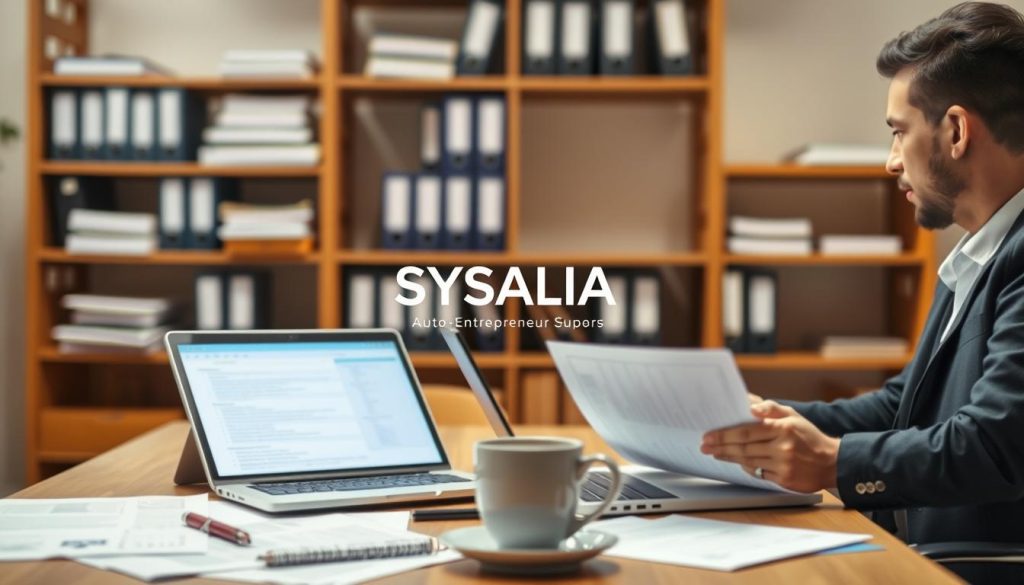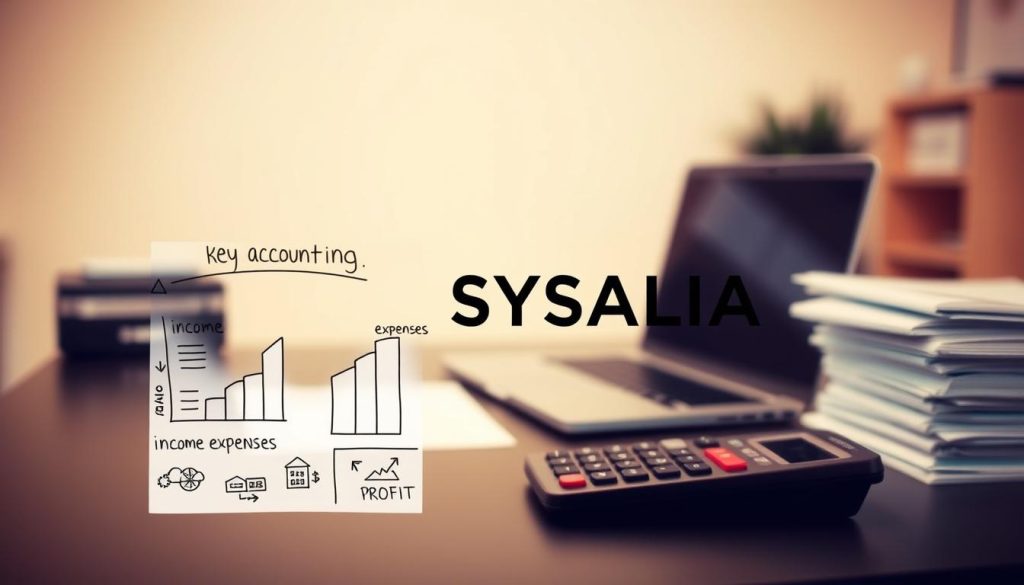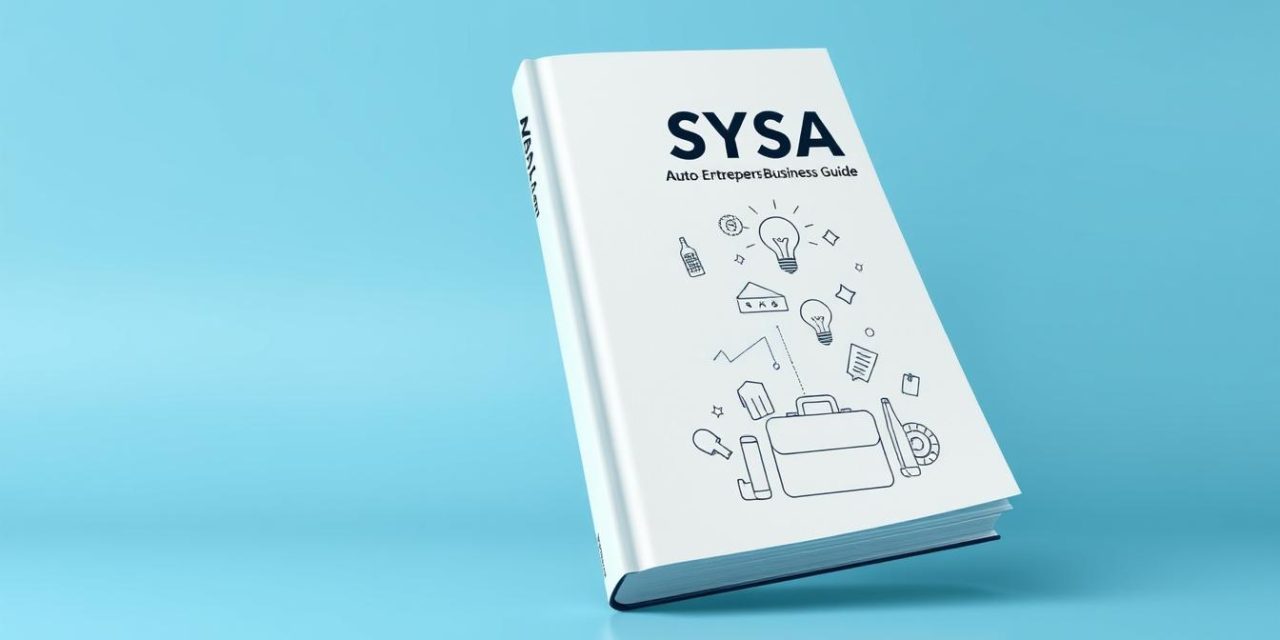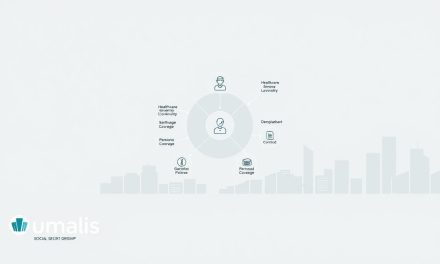Starting your own business can feel overwhelming, but it doesn’t have to be. Whether you’re a student, retiree, or professional looking for flexibility, the auto-entrepreneur system in France offers a simple way to turn your passion into income. With streamlined registration and financial benefits, this path makes entreprise creation accessible for everyone.
This guide breaks down every step—from legal démarches to tax advantages—so you can launch confidently. The micro-social and micro-fiscal regimes protect your earnings while keeping paperwork minimal. Plus, updates for 2024 ensure you stay ahead of changing rules.
By the end, you’ll have a clear roadmap to build your site or service without guesswork. Let’s simplify your journey to independence together.
Table of Contents
Key Takeaways
- Simplified registration through the Guichet Unique platform saves time.
- Micro-social and micro-fiscal regimes offer financial protections.
- Revenue thresholds and VAT rules are explained for clarity.
- Monthly or quarterly declarations reduce administrative burdens.
- 2024 updates include adjusted social contribution rates.
What Is an Auto-Entrepreneur?
Forget complex setups—this régime lets you focus on revenue, not red tape. France’s auto-entrepreneur status simplifies business creation for solo ventures, blending freelancing flexibility with legal structure.
Definition and Legal Status
As a micro-entrepreneur, you operate as an individual or EURL manager under dual protections: the micro-social (social security) and micro-fiscal (tax) regimes. Your personal assets stay separate unless you file a déclaration d’insaisissabilité for secondary properties.
Key Characteristics of the Régime
Revenue caps for 2024 protect small businesses:
- €188,700 for commerce (e.g., retail)
- €77,700 for services (e.g., consulting)
Exceed limits for two consecutive years? The system automatically adjusts your status. Temporary spikes get a two-year grace period.
« The micro-entrepreneur system turns passion projects into sustainable businesses—without drowning in paperwork. »
Other perks include:
- Simplified accounting: Pay URSSAF contributions based on chiffre d’affaires (revenue).
- Banking rules: Open a dedicated account after hitting €10K revenue for two years.
- Exclusions: Agricultural and real estate activities don’t qualify.
Who Can Become an Auto-Entrepreneur?
France’s simplified business model welcomes diverse professionals—here’s who qualifies. Whether you’re launching a side hustle or transitioning to full-time independence, understanding the conditions ensures compliance and confidence.
Eligibility Requirements
To register, you must:
- Be 18+ years old (or an emancipated minor)
- Not hold another self-employed status simultaneously
- Reside in France—EU citizens need proof of address; non-EU applicants require valid residency permits
Public sector employees face restrictions. If you’re already a business owner, this status won’t apply unless you dissolve existing structures.
Special Cases: Flexibility for Unique Situations
The system adapts to various lifestyles:
- Students: Freelance while studying, but declare income to avoid scholarship impacts.
- Retirees: Pensioners (retraite) can supplement income without losing benefits, provided revenue stays below thresholds.
- Salaried workers: Keep your job while testing a side activité, but check employer policies for conflicts.
« The micro-entrepreneur status removes barriers for those balancing multiple roles—students, parents, or career changers. »
Unemployment benefit recipients must declare earnings, which may adjust payout amounts. Overseas territories (DROM-COM) follow the same rules but with localized tax rates.
Auto-Entrepreneur Advantages and Limitations
Balancing simplicity and growth potential, the micro-entrepreneur system offers unique benefits with clear boundaries. This régime removes traditional hurdles for small entreprises, but understanding its framework ensures long-term success.
Streamlined Operations for Faster Launches
Unlike traditional SARL setups, this status requires no minimum capital or legal publications. New ventures enjoy a three-year CFE tax exemption if revenue stays below €5,000 annually.
Key administrative perks:
- Simplified declarations: File monthly/quarterly chiffre d’affaires via mobile app.
- Reduced costs: Social charges range from 12.3% (services) to 24.6% (retail) in 2024.
- Light accounting: Track revenue only—no balance sheets or profit statements.
Growth Boundaries and Strategic Planning
Revenue caps protect the régime’s simplicity but demand vigilance. A freelance web developer earning €80,000 in 2024 would automatically transition to standard tax rules.
« Exceeding thresholds isn’t failure—it’s a sign to reassess your business structure for scalability. »
Hidden considerations:
- VAT registration triggers at €36,800 (services) or €94,300 (commerce), adding compliance layers.
- Retirement contributions (retraite) calculate differently under the micro-social system.
- Professional liability insurance becomes critical as revenue grows.
Choosing Your Auto-Entrepreneur Activity
Your business activities determine everything from tax rates to legal requirements—here’s how to classify them correctly. The micro-entrepreneur system supports diverse *activités*, but strict rules apply to ensure compliance.
Allowed Business Categories
Activities fall into two tax classifications:
- BIC (Business Income): Selling *biens* (goods) or running commercial ventures like e-commerce.
- BNC (Non-Commercial Income): Offering *prestations services* (consulting, coaching, creative work).
| Category | Examples | Social Charge Rate (2024) |
|---|---|---|
| BIC | Retail, food production | 13.3% |
| BNC | Design, tutoring, IT services | 23.4% |
Prohibited Activities to Avoid
Some sectors are excluded:
- Agricultural work (regulated by MSA)
- Real estate transactions with VAT obligations
- Activities requiring professional licenses (e.g., law, medicine)
« Misclassifying your activity can lead to fines—always verify with the chambre métiers artisanat for regulated trades. »
Special Cases for Regulated Professions
Trades like construction or vehicle repair require certifications. For example:
- Food production: Hygiene training and kitchen inspections.
- Artistic work: Intellectual property rights apply differently to prestations services.
Need help comparing tax rates for your prestations services? Explore this guide for detailed breakdowns.
Understanding the Financial Framework
Your revenue determines key obligations, so understanding limits keeps your business compliant. The micro-entrepreneur régime sets clear boundaries to simplify financial management while protecting growth potential.
Activity-Specific Revenue Caps
Your chiffre d’affaires (annual revenue) must stay within 2024 limits:
- €77,700 for services (consulting, coaching)
- €188,700 for commercial activities (retail, e-commerce)
- €91,900 triggers mandatory VAT for goods sales
Classified furnished rentals enjoy an 83% abattement—only 17% of revenue counts toward thresholds.
The Two-Year Grace Period
Exceed limits once? No penalty. The system allows temporary spikes if:
- You document the anomaly (e.g., one-time project)
- Revenue drops below caps the following year
« Track monthly chiffre d’affaires with free URSSAF tools to avoid surprise status changes. »
Dual-activity businesses aggregate revenue. A graphic designer (BNC) selling prints (BIC) must combine both streams.
VAT Registration Triggers
Mandatory TVA applies when hitting:
- €36,800 for service providers
- €94,300 for goods sellers (2024 thresholds)
Voluntary early registration is possible if clients need deductible VAT invoices.
Step-by-Step Registration Process
The French system simplifies business registration, but knowing the steps ensures no delays. The Guichet Unique platform, managed by INPI, centralizes all formulaire submissions for micro-entrepreneurs. Follow this roadmap to activate your registre without surprises.
Navigating the Guichet Unique Platform
Create an account using your social security number—mandatory for tax linkage. The site guides you through:
- Activity classification (BIC/BNC)
- Professional address declaration (home or rented space)
- URSSAF contribution rate selection
Essential Documents and Information
Non-French nationals need:
- Valid residency permit (non-EU)
- Proof of address (less than 3 months old)
- Bank details for future declarations
EU citizens skip permits but must provide informations like passport copies.
« Double-check dropdown menus—misclassified activities cause 30% of rejections. »
From Submission to SIRET Number
Approval takes 2-6 weeks. Track progress via email alerts. Common holdups include:
- Missing notarized translations (foreign documents)
- Name conflicts with existing businesses
Once approved, sync your SIRET with URSSAF for declaration access.
Post-registration, complete these steps within 15 days:
- Register a commercial name (optional)
- Activate professional liability insurance
- Set up emergency contact protocols
Banking Requirements for Auto-Entrepreneurs
Managing finances efficiently is crucial for every small business owner—here’s how banking works for micro-entrepreneurs. A compte bancaire dédié (dedicated account) keeps transactions clean and compliant, but understanding the conditions saves time and stress.
When a Dedicated Account Becomes Mandatory
France requires a separate business account once revenue exceeds €10,000 annually for two consecutive years. Below this threshold, personal accounts are allowed—but mixing funds complicates tax audits.
Track deposits carefully. URSSAF may request proof of revenue segregation during inspections.
Options for Business Banking
Indépendants can choose from:
- Traditional banks: Offer in-person support but higher fees.
- Neo-banks: Digital platforms like Qonto or Shine provide low-cost solutions with automated tracking.
| Bank Type | Monthly Fee (€) | Key Feature |
|---|---|---|
| Traditional | 15–30 | Local branches |
| Neo-bank | 0–10 | Real-time alerts |
« A dedicated account isn’t just a rule—it’s a tool to visualize cash flow and plan growth. »
Audit-proof practices include:
- Labeling transfers (e.g., « Client X Payment »).
- Saving digital receipts for 10 years.
- Using multi-currency accounts for international clients.
Fraud prevention starts with two-factor authentication and monthly statement reviews. For entreprises scaling fast, credit-building strategies like small loans improve financing options later.
The Auto-Entrepreneur Social Regime

Your safety net matters as much as your revenue—here’s how France’s micro-entrepreneur system protects you. Social cotisations fund healthcare, retirement, and disability coverage while keeping costs predictable. Whether you’re a freelancer or consultant, understanding these protections ensures long-term stability.
Social Security Coverage
The regime offers parity with salaried workers for:
- Health insurance: Reimbursements align with standard sécurité sociale rates.
- Maternity/paternity leave: 16 weeks paid (maternity), 25 days (paternity).
- Disability: Monthly payouts after 6 months of certified incapacity.
Overseas territories (DROM-COM) follow mainland rules but may adjust payout timelines.
Calculating and Paying Contributions
2024 rates vary by activity:
- 12.3% for goods sales (BIC).
- 24.6% for services (BNC).
- +0.3% CFP training levy on all revenue.
« Contributions are your lifeline—prioritize them for uninterrupted coverage. »
Pay monthly or quarterly via URSSAF’s app. Late payments incur 5% penalties after 30 days.
Retirement and Insurance Options
Your retraite base depends on lifetime cotisations. Boost it with:
- Complementary plans: AGIRC-ARRCO for higher pensions.
- Professional liability: Covers client disputes (€100–300/year).
Unemployment benefits (ATI) require 2+ years of activity and proof of revenue loss.
Tax Obligations Simplified
Tax rules don’t have to be confusing—here’s how the micro-fiscal system simplifies your obligations. With fixed abattement percentages and optional liberatory payments, you can forecast liabilities accurately. This framework balances compliance with flexibility, ideal for growing businesses.
How Abattements Reduce Your Tax Base
The regime automatically deducts expenses via abattement forfaitaire (flat-rate deductions). Your activity type determines the percentage:
- 71% for goods sales (BIC)—only 29% of revenue is taxed.
- 50% for commercial services (e.g., catering).
- 34% for liberal professions (BNC).
These deductions apply before applying income tax taux (rates). A €20,000 BIC revenue becomes a €5,800 taxable base after abattement.
Liberatory Payment Option
Opt for versions libératoires to pay taxes directly with URSSAF contributions. Rates vary:
| Activity | Liberatory Rate | Minimum Deduction |
|---|---|---|
| Retail (BIC) | 1% | €305 |
| Services (BNC) | 2.2% | €305 |
« Liberatory payments streamline finances—one declaration covers taxes and social charges. »
Avoiding Common Pitfalls
Stay compliant with these strategies:
- Track thresholds: Exceeding €36,800 (services) or €94,300 (goods) triggers VAT.
- Digital tools: Use URSSAF’s simulator to model quarterly vs. monthly payments.
- Penalty prevention: Late déclaration incurs 10% fines—set calendar reminders.
For dual-activity businesses, separate revenue streams to optimize abattements. Always retain payment records for 10 years.
Understanding TVA Rules
Navigating VAT rules doesn’t require a tax degree—here’s how the micro-entrepreneur system simplifies compliance. The franchise de base rule exempts small businesses from VAT until they hit revenue thresholds, reducing administrative burdens. Whether you sell goods or services, knowing these seuils ensures you register only when necessary.
Franchise de Base Thresholds
France’s 2024 thresholds protect small businesses:
- €36,800 for services (consulting, coaching).
- €94,300 for goods (retail, e-commerce).
Exceed these limits for 12 consecutive months? VAT registration becomes mandatory. The system uses a rolling calculation—track revenue monthly to avoid surprises.
When VAT Registration Becomes Necessary
Crossing the seuil triggers:
- Invoice updates: Add your VAT number and client tax details.
- Quarterly filings: Declare and pay VAT via the tva portal.
« Voluntary registration makes sense if clients reclaim VAT—weigh the administrative cost against competitive advantages. »
| Activity Type | Threshold (€) | VAT Rate |
|---|---|---|
| Services (BNC) | 36,800 | 20% |
| Goods (BIC) | 94,300 | 10%* |
*Reduced rates apply to essentials like food or books.
Cross-border sales follow EU VAT rules. For digital services, use the Mini One-Stop Shop (MOSS) scheme. Always verify sector exceptions—artistic or educational activités may qualify for exemptions.
Declaring Your Revenue
Staying compliant starts with accurate revenue reporting—here’s your streamlined guide. The micro-entrepreneur system simplifies déclarations with flexible schedules and digital tools. Whether you’re tracking sales or prestations de service, timely submissions protect your business status.
Monthly vs. Quarterly Declarations
Choose a schedule matching your cash flow:
- Monthly: Ideal for steady income—file by the 30th via URSSAF’s site or app.
- Quarterly: Better for seasonal work (deadlines: April 30, July 31, etc.).
Both options require reporting chiffre d’affaires (revenue) only—no expense tracking.
Penalties for Late or Missing Declarations
Miss a deadline? Consequences escalate:
| Delay | Fine | Additional Action |
|---|---|---|
| 1–30 days | €52 | Warning notice |
| 31+ days | 10% of owed contributions | Legal proceedings risk |
Zero-revenue periods still need déclarations—skip them, and you’ll lose régime benefits.
« Set calendar alerts for deadlines. The URSSAF app sends reminders, but manual backups prevent oversights. »
First Declaration Special Rules
New businesses enjoy a 3-month grace period for initial filings. Use this time to:
- Test cash-basis accounting (record income when received).
- Scan receipts using OCR tools for audit trails.
- Aggregate multi-platform income (e.g., Etsy + PayPal).
Correct errors within 30 days without penalties—historical adjustments are allowed.
Essential Accounting Requirements

Your accounting system doesn’t need complexity to stay compliant—focus on these core requirements. France’s micro-entrepreneur framework minimizes paperwork while ensuring legal safety. Whether you manage factures digitally or on paper, these rules keep your entreprise audit-ready.
Revenue Bookkeeping Obligations
Maintain accurate records with these methods:
- Mandatory sales registre: Track all transactions, even under €25.
- Digital tools: Apps like QuickBooks or Zoho Books automate entries.
- Expense exemptions: No need to log costs—only revenue matters.
For international clients, note multi-currency conversions in your registre. The French tax authority (impôts) ensures transparency.
Invoice Requirements and Templates
Professional factures must include:
- Your SIRET number and business name.
- Client informations (name, address).
- Clear payment terms and VAT exemption statement (if applicable).
« A well-structured invoice template prevents disputes and speeds up payments. »
Use free templates from URSSAF or industry associations. For Médiation de la consommation, add contact details for consumer disputes.
Store records for 10 years—cloud backups meet legal archiving rules. Regular audits ensure compliance with France’s data protection laws (RGPD).
Legal Protections for Auto-Entrepreneurs
Protecting your assets is as crucial as growing your business—here’s how France’s legal framework shields micro-entrepreneurs. The system prioritizes your protection with automatic safeguards and optional steps to secure biens (assets) against risks. Whether you’re a consultant or artisan, understanding these droits (rights) ensures long-term stability.
Asset Protection Mechanisms
Your primary residence is automatically shielded from creditors—no paperwork needed. For secondary properties or business tools, file a notarized non-seizability declaration at the mortgage office (bureau des hypothèques). This costs ~€150 but locks in security.
Key strategies for different scenarios:
- Debt liability: Personal assets stay safe if debts are professional. Mixing funds? Courts may pierce the veil.
- Insurance: Professional liability policies cover client disputes (€200/year average).
- Matrimonial regimes: Under séparation de biens, spouses’ assets remain separate during legal challenges.
« A notarized declaration is cheaper than losing your workshop—invest early to avoid irreversible losses. »
Declaration of Non-Seizability Process
To exclude specific biens from creditor claims, submit a déclaration d’insaisissabilité via a notary. Required documents:
- Property deeds or equipment invoices.
- Proof of business use (e.g., rental contracts).
- ID and SIRET number.
Post-submission, the declaration appears in the registre civil within 48 hours. Update it if selling protected assets. For cross-border operations, explore comprehensive social protections for freelancers to extend coverage internationally.
Succession planning: Designate heirs for business tools in your will. Unprotected assets may face liquidation during probate.
Growing Your Auto-Entrepreneur Business
Your business journey isn’t static—recognize the signs it’s time for a formal transition. As revenue increases or teams expand, the micro-entrepreneur system may limit your activité. Strategic upgrades unlock funding, liability protections, and tax benefits.
Key Indicators for Status Change
Consider evolving when you encounter:
- Revenue thresholds: Consistently nearing €77,700 (services) or €188,700 (commerce).
- Team needs: Hiring employees requires transitioning to SARL or SAS sociétés.
- Investor interest: Shareholder structures demand formal entreprise frameworks.
Transitioning to Other Business Forms
France offers multiple pathways for scaling:
| New Structure | Capital Minimum | Social Charge Impact |
|---|---|---|
| SARL | €1 | 45-50% of salary |
| SAS | €1 | Director salaries taxed at 60% |
« Converting isn’t failure—it’s strategic adaptation. The best time to plan is 6 months before hitting revenue ceilings. »
Essential formalités include:
- Registering with the greffe du tribunal de commerce.
- Transferring client contracts under the new entity.
- Updating insurance policies for expanded operations.
Professional advisors simplify transitions—budget €1,500-3,000 for legal and accounting fees. Protect your brand by trademarking names during the process.
Common Pitfalls to Avoid
Even experienced entrepreneurs can stumble—here’s how to sidestep common pitfalls. While France’s simplified system reduces bureaucracy, certain erreurs trigger 87% of audits and rejections. We’ll highlight real cases and proven strategies to keep your entreprise compliant and thriving.
Frequent Administrative Mistakes
Incomplete démarches account for 62% of registration rejections. A graphic designer lost three weeks by misclassifying her activity as BIC instead of BNC. Always verify your category with the chambre de métiers before submission.
Other costly oversights:
- Document gaps: Missing residency permits or translated certificates delay processing.
- Threshold neglect: Not tracking monthly chiffre d’affaires leads to surprise VAT obligations.
- Address errors: Using temporary housing without proof triggers compliance checks.
« One client faced €2,300 fines for mixing personal and business compte transactions—segregate funds from day one. »
Financial Management Best Practices
URSSAF audits often target expense claims. A Marseille baker avoided penalties by:
- Using dedicated accounting software (Zoho Books)
- Storing digital receipts for 10 years
- Scheduling quarterly tax prepayments
Essential tools for stability:
| Tool | Purpose | Cost |
|---|---|---|
| Shine | Business banking | €9/month |
| QuickBooks | Cash flow tracking | €25/month |
| URSSAF Alerts | Deadline reminders | Free |
Build a compliance calendar with these key dates:
- Monthly declarations: 30th of each month
- CFE tax payment: December 15
- Insurance renewals: Annual policy review
For international clients, always note exchange rates in contracts. A freelance translator lost €1,200 by not specifying payment currencies.
Conclusion
Your entrepreneurial journey deserves a strong finish—let’s ensure lasting réussite. As an auto-entrepreneur, you’ve mastered streamlined compliance, financial frameworks, and growth strategies. Now, leverage these tools to scale your activité with confidence.
Stay ahead with regular regulatory checks and professional accompagnement. Join communities like URSSAF’s forums or local chambres de métiers for peer support. Track progress using key metrics—revenue stability, client retention, and skill development.
Remember, every thriving business evolves. Revisit this guide as your needs change, and celebrate each milestone. Your independence starts today—keep learning, adapting, and growing.
FAQ
What legal status does an auto-entrepreneur have?
The auto-entrepreneur operates as a micro-enterprise under French law, benefiting from simplified administrative and tax rules. It’s not a separate legal entity but falls under sole proprietorship.
Can students or retirees register as auto-entrepreneurs?
Yes, students and retirees can register, provided they meet standard eligibility criteria. However, pension income may affect social contribution calculations.
What are the key benefits of this regime?
Simplified tax declarations, reduced social charges, and exemption from VAT below the franchise de base threshold make this an attractive option for small businesses.
Which business activities are prohibited?
Regulated professions (lawyers, accountants), agricultural activities, and real estate transactions are excluded. Always verify with your Chambre de Métiers or URSSAF.
When must I open a dedicated business bank account?
A separate account becomes mandatory if your annual revenue exceeds €10,000 for two consecutive years. Some banks offer free micro-enterprise accounts.
How does the liberatory tax payment option work?
This flat-rate tax is paid monthly/quarterly with social contributions, covering income tax. It simplifies filings but may not be optimal for low-revenue periods.
What happens if I exceed revenue thresholds?
You benefit from a two-year tolerance period before needing to transition to another status (e.g., EI or SASU). Declare excess revenue promptly to avoid penalties.
Are there invoice requirements for auto-entrepreneurs?
Yes. Invoices must include your SIRET, « Auto-entrepreneur » status, and client details. Free templates are available through URSSAF’s portal.
How do I declare revenue if I start mid-year?
Your first declaration covers actual activity months. Subsequent filings follow the standard monthly/quarterly schedule based on your chosen frequency.
Can I hire employees under this status?
No. The regime is strictly for solo entrepreneurs. Hiring staff requires transitioning to a different legal structure like EURL or SASU.





